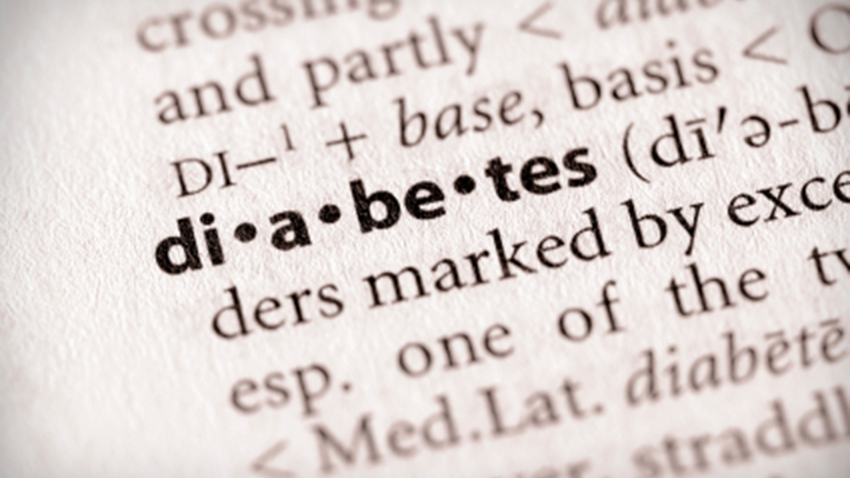Diabetes Treatment

Knowledge is Power.
True/False - Quiz: Do You Understand Diabetes Treatment?
Information - Diabetes Treatment
 There are two main types of diabetes: type 1 and type 2 diabetes. If you have type 1 diabetes, your body doesn’t produce insulin. Insulin is secreted by the pancreas when food is absorbed, so as food accumulates in the blood in someone with type 1 diabetes, sugar levels get too high. Type 2 diabetes is the most common form of diabetes, and occurs when your body does not use insulin properly.
There are two main types of diabetes: type 1 and type 2 diabetes. If you have type 1 diabetes, your body doesn’t produce insulin. Insulin is secreted by the pancreas when food is absorbed, so as food accumulates in the blood in someone with type 1 diabetes, sugar levels get too high. Type 2 diabetes is the most common form of diabetes, and occurs when your body does not use insulin properly.
Diabetes Management Plans
If you have been diagnosed with diabetes, you'll need to monitor your blood sugar levels carefully in order to avoid complications. Checking your blood sugars daily at home with a glucometer is one way you can do this. The fasting target (when you haven't eaten or had any liquids for eight hours or longer) for patients is between 4mmol/L and 7mmol/L.
Having your A1C levels checked can tell you how well your diabetes management is working. An A1C level provides information about a person's average blood glucose control over the past two to three months. The A1C target for most patients is 7.0% or lower. Keeping an A1C within a normal range can help reduce the complications of diabetes in the future. When these targets are not reached patients put themselves at risk for heart disease, stroke, eye damage, nerve damage and kidney damage.
Types of Diabetes Treatments
 There are a number of lifestyle considerations for diabetes patients who are trying to lower and control blood sugar levels. The first one is to have a healthy meal plan. There’s no set diabetes diet - it simply means eating healthy foods in moderate amounts at regular mealtimes. You want to eat a diet that’s low in fat and calories and rich in nutrients, including vegetables, fruits and whole grains. If you have diabetes, your doctor will probably recommend that you see a dietitian to create a healthy eating plan, control your blood sugar (glucose), control risk factors for heart disease and manage your weight. When blood glucose levels get too high, it can lead to complications such as hyperglycemia, heart, nerve and kidney damage. Having a healthy meal plan in place, exercising regularly and learning how to manage stress will all contribute to staying healthy.
There are a number of lifestyle considerations for diabetes patients who are trying to lower and control blood sugar levels. The first one is to have a healthy meal plan. There’s no set diabetes diet - it simply means eating healthy foods in moderate amounts at regular mealtimes. You want to eat a diet that’s low in fat and calories and rich in nutrients, including vegetables, fruits and whole grains. If you have diabetes, your doctor will probably recommend that you see a dietitian to create a healthy eating plan, control your blood sugar (glucose), control risk factors for heart disease and manage your weight. When blood glucose levels get too high, it can lead to complications such as hyperglycemia, heart, nerve and kidney damage. Having a healthy meal plan in place, exercising regularly and learning how to manage stress will all contribute to staying healthy.
 Insulin therapy is one treatment option available to patients with diabetes. All patients with type 1 diabetes and some patients with type 2 diabetes will require insulin. There are several types of insulin on the market so patients need to discuss the options carefully with their healthcare provider to decide what therapy would best suit them.
Insulin therapy is one treatment option available to patients with diabetes. All patients with type 1 diabetes and some patients with type 2 diabetes will require insulin. There are several types of insulin on the market so patients need to discuss the options carefully with their healthcare provider to decide what therapy would best suit them.
There are three key types of insulin: Bolus, Basal and Premixed Insulin:
- Bolus insulin is an insulin designed to act quickly and briefly and is effective at controlling sugars after eating a meal, lasting for approximately 3 -5 hours.
- Basal insulin is designed to act slowly over a longer period of time to cover a full day.
- Premixed insulin is a combination of bolus and basal insulin, which can be administered at the same time, however, it does limit flexibility as it comes as a fixed dose.
- Insulin is injected just under the skin or "subcutaneously" with an insulin pen that uses a very small needle. They can be prefilled, reusable or disposable and often already have a needle tip added.
Almost 90% of people who have type 2 diabetes are overweight or obese. If you're overweight or obese, you will need to create an effective diet and exercise plan with your diabetes healthcare team. Being overweight or obese puts added pressure on the body's ability to properly use insulin to control blood sugar levels.
Talk to your endocrinologist if you'd like more information on diabetes treatment.
Visit HealthChoicesFirst.com for more videos and resources on diabetes.
Print this Action Plan and check off items that you want to discuss with your healthcare provider
-
If you have been diagnosed with diabetes, you'll need to monitor your blood sugar levels carefully in order to avoid complications. Checking your blood sugars daily at home with a glucometer is one way you can do this.
-
Having your A1C levels checked can tell you how well your diabetes management is working. An A1C level provides information about a person's average blood glucose control over the past two to three months.
-
If you have diabetes, your doctor will probably recommend that you see a dietitian to create a healthy eating plan, control your blood sugar (glucose), control risk factors for heart disease and manage your weight.
-
Insulin therapy is one treatment option available to patients with diabetes. All patients with type 1 diabetes and some patients with type 2 diabetes will require insulin.
-
Almost 90% of people who have type 2 diabetes are overweight or obese. If you're overweight or obese, you will need to create an effective diet and exercise plan with your diabetes healthcare team.

